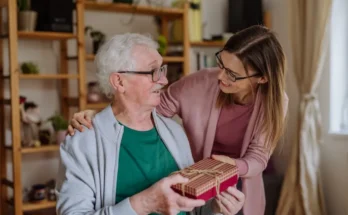There’s a quiet magic in giving. It begins not in the hands but in the heart — a thought, a memory, a moment that tells us someone deserves to feel special. Gifts are more than boxes wrapped in shiny paper or envelopes tucked with currency. They’re expressions of affection, appreciation, celebration, and sometimes even apology.
Throughout history and across cultures, the act of giving has served as a bridge — between lovers, friends, families, even strangers. A gift can carry words we can’t always say, offer comfort without speech, and remind us we’re seen, valued, remembered.
Gifts are not always material. Sometimes, they come in the form of time, presence, or a carefully chosen word. But whether tangible or intangible, gifts hold emotional weight. They are, at their best, symbols of connection.
The Deep Meaning Behind Giving:
-
Gifts as Emotional Currency
Human beings are emotional creatures. We crave meaning, intimacy, belonging. Gifts allow us to channel those feelings into a form someone else can hold, wear, use, or cherish.
A child’s drawing offered to a parent isn’t just crayon on paper. It’s pride and love scribbled with tiny fingers. A handpicked book gifted to a friend says, “I know your taste. I thought of you.” A simple bouquet left on a doorstep may whisper, “You’re not alone.”
When words fall short or timing is tough, a gift becomes our voice. And in giving, we often receive more — not in return gifts, but in the joy of having made someone else feel seen.
-
Cultural Significance of Gifts
Across the world, gifting plays a pivotal role in cultural rituals. In Japan, gifts are wrapped with as much care as they are chosen. In India, wedding gifts symbolize prosperity and blessings. In African cultures, traditional gift-giving is part of honoring community and lineage.
These practices teach us that gifting isn’t merely transactional. It’s relational — rooted in history, tradition, and the understanding that to give is to bond.
The Importance of Gifts in Human Relationships:
-
Creating and Strengthening Bonds
Gifts strengthen relationships. Think of birthdays, anniversaries, and holidays. These aren’t just dates on a calendar. They’re reminders to pause, reflect, and show others that they matter to us.
Giving is not about cost; it’s about connection. A homemade card can mean more than a diamond necklace if it comes from a place of sincerity. Children remember not the price tag of a gift, but the way it made them feel. So do adults.
The act of giving can mend bridges, reignite old friendships, or sustain love through distance and time. It allows us to step outside ourselves and say, “I know you. I understand you. I care.”
-
A Mirror of Intentions
The way we give says something about who we are. A rushed, generic gift may tick a box, but a thoughtful one — chosen with care and heart — reveals intention. It shows attentiveness. It says, “You’ve been on my mind even when you weren’t in the room.”
In this way, gifts become mirrors of our attentiveness, our empathy, and our capacity for selflessness.
Types of Gifts and Their Meanings:
-
The Personalized Gift
Personalized gifts — engraved names, custom artwork, or photo albums — remind us that someone saw us as unique. They celebrate individuality, memory, and emotion. They are never “just another item,” because they carry a story that only fits one person.
These gifts live beyond moments. They age with time, becoming keepsakes. They whisper reminders of who we were and who we meant something to.
-
The Experiential Gift
In our increasingly material world, experiences are becoming prized possessions. Gifting someone a cooking class, a weekend getaway, or a concert ticket says, “I want you to live, explore, enjoy.”
Experiential gifts create memories instead of clutter. They often become the most cherished kind, because they offer something money can’t always buy: time together, laughter, adventure, or discovery.
-
The Surprise Gift
Spontaneous gifts are pure magic. When they arrive without reason or occasion, they convey even deeper sincerity. “I saw this and thought of you,” is one of the most heartwarming sentences in any language.
Surprise gifts don’t wait for dates or obligations. They’re rooted in spontaneity and joy — which often makes them unforgettable.
The Modern Era of Gift-Giving:
-
Gifting in a Digital World
In today’s fast-paced, tech-saturated world, gifts have taken new forms. E-gift cards, subscriptions, and digital services have made giving more convenient — but sometimes less personal. It’s easy to send a link. It’s harder to send a message that truly touches the heart.
Yet, technology also opens doors for thoughtful digital gifts: a playlist curated for a friend, a video message from a loved one across the world, or a digital photo book of shared memories. Modern gifting, when combined with intention, still holds magic — even on a screen.
-
Minimalism and Mindful Giving
With the rise of conscious living, people are now rethinking what they give and why. Rather than gifting for the sake of gifting, modern givers are becoming more intentional.
Mindful giving means thinking about the impact — is this useful, meaningful, sustainable? Will it add value or just take up space?
In this shift, gifts become less about excess and more about essence. They move from quantity to quality, from trend to thought.
Giving as a Form of Love:
One of the most powerful gifts today is presence. In a world flooded with distractions, simply giving someone your undivided attention is rare and sacred.
Sitting with a grandparent, helping a child with their homework, listening to a friend vent — these are gifts with no wrapping, but immense worth. They heal. They affirm. They connect. Time is the one gift we can’t take back, and when given freely, it becomes the most generous offering of all.
Receiving a gift feels wonderful — like being seen, appreciated, and celebrated. But giving one? That’s another kind of joy altogether. It uplifts. It fills. It transforms. There’s a quiet fulfillment in watching someone light up at something you chose just for them. That moment of joy, that connection — it’s a reminder that giving is, in many ways, the greatest gift of all.
Conclusion:
Gifts are not about extravagance or expectation. They are about emotion, about stories, about shared space between souls. They mark moments, soften silences, and turn ordinary days into celebrations.
In giving, we don’t just offer objects — we offer pieces of ourselves. And in a world that often rushes past what truly matters, a thoughtful gift slows everything down and says, “This matters. You matter.”
So whether it’s a small note, a handmade item, or a lifelong memory in the making, let your next gift carry your heart in it.
Because at the end of the day, the best gifts are not found in stores.




